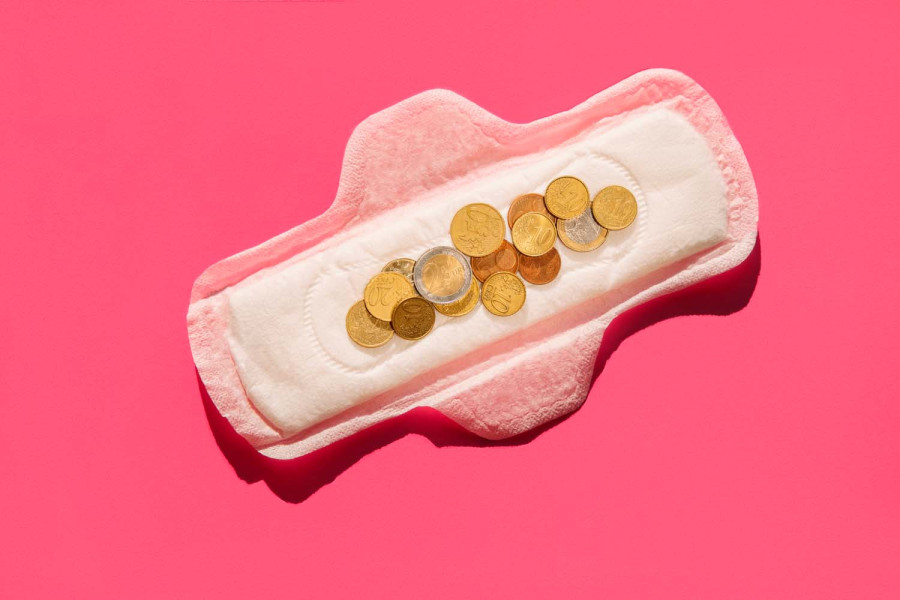Money
Supreme Court orders tax removal on sanitary pads after four-year legal battle
Ruling follows a writ petitioned by two law students in 2021, in a significant step towards menstrual equity in Nepal. The move is expected to lower prices, boost domestic production, and improve access to essential hygiene products.
Post Report
After nearly four years of legal proceedings, the Supreme Court has ruled in favour of removing tax on sanitary pads.
On Wednesday, a bench comprising justices Manoj Kumar Sharma and Mahesh Sharma Poudel issued the decision in response to a writ petition by two law students, Shreena Nepal and Abhyuday Bhetwal.
The duo had petitioned the court to eliminate the tax on sanitary pads, arguing for their classification as essential goods rather than luxury items.
Nepal and Bhetwal, both students at the Kathmandu School of Law, filed the writ petition on August 10, 2021, demanding that menstrual products be exempt from taxation.
During the initial hearing on August 12, the court directed them to collect written responses from the four relevant ministries: the Ministry of Finance; the Ministry of Women, Children, and Senior Citizens; the Ministry of Law, Justice and Parliamentary Affairs; and the Ministry of Health and Population.
Kishor Bartaula, director of the Policy and Operation Division at the Department of Customs, said that imported sanitary pads currently carry a total tax of 18 percent— 5 percent customs duty and 13 percent Value Added Tax (VAT).
The same rate applies to the import of raw materials used in domestic production.
“The full text of the verdict has yet to be released, but once the decision is enforced, it will help promote domestic production, lower prices of sanitary pads, and potentially increase exports,” said Dol Raj Adhikari, president of the Nepal Sanitary and Diaper Association.
“With this ruling, sanitary pads will become 18 percent cheaper. For example, a packet priced at Rs60 will now cost approximately Rs50 after tax removal,” Adhikari said. He added that it remains unclear whether both VAT and customs duties have been removed for imported products as well.
According to the Department of Customs, Nepal imported 213 million sanitary pads worth Rs1.33 billion in the last fiscal year, generating Rs251.20 million in tax revenue.
Previously, for more than a decade, the government levied 15 percent customs duty, 13 percent VAT, and an additional 1.5 percent VAT on customs duty for sanitary pad imports. Despite calls for reform, these rates had remained largely unchanged.
In response to growing pressure from women’s rights activists, the government reduced customs duty on finished sanitary pads from 15 percent to 1.5 percent, and on raw materials from 15 percent to 1 percent, in the fiscal 2022–23 budget.
Advocates for accessible menstrual hygiene argue that the government can afford to forgo the revenue generated from taxing these products.
They stress that menstrual products should be categorised as essential goods—similar to medicines, contraceptives, and medical supplies, which are exempt from VAT.
Menstrual hygiene is not just a health issue but also an educational and economic one. Poor menstrual hygiene often contributes to school dropouts and reduced workplace productivity.
Globally, activists have urged governments to scrap taxes on menstrual products to combat period poverty—defined as a lack of access to safe and hygienic menstrual materials.
In Nepal, many women and girls, particularly in rural areas, face challenges due to limited awareness, high costs, and social stigma related to menstruation. The Covid pandemic further exposed these inequalities.
Internationally, several countries have already moved in this direction. India eliminated its 12 percent tax on sanitary products in July 2018.
The Maldives followed in December 2018 by exempting all menstrual products from tax. The same year, Colombia's Constitutional Court struck down a 5 percent tax on menstrual products, labelling it unconstitutional, and mandated free distribution of such products to homeless women in Bogotá.
In 2020, Scotland passed a bill to provide menstrual products free of charge to anyone who needs them.
The Supreme Court's recent decision is a milestone in Nepal’s efforts toward menstrual equity and improving women's health and dignity, according to experts.




 9.89°C Kathmandu
9.89°C Kathmandu














